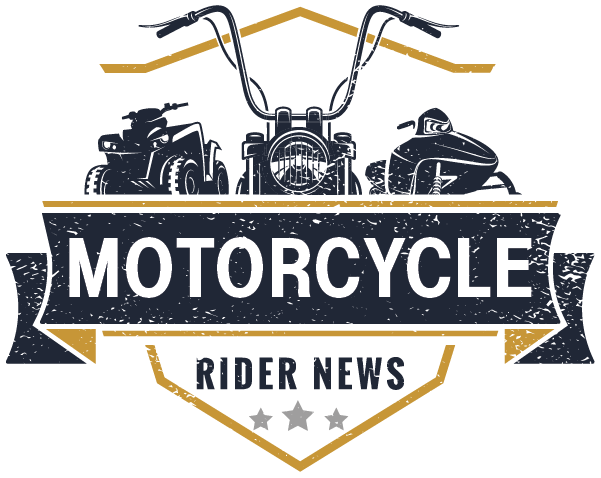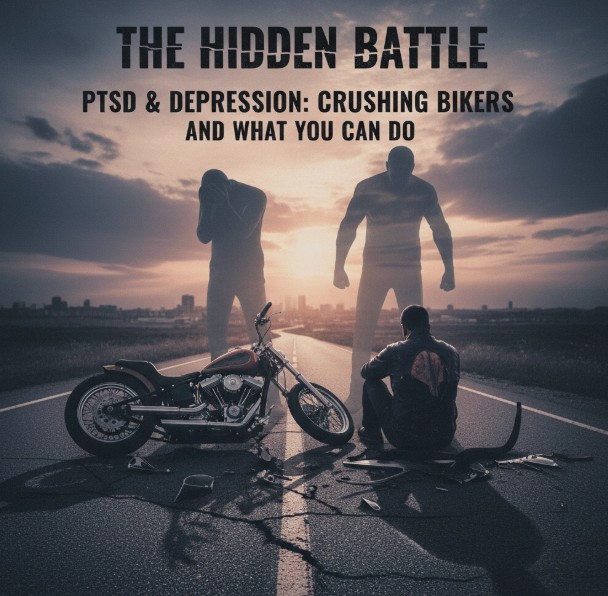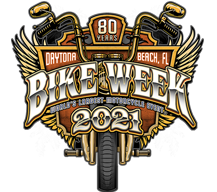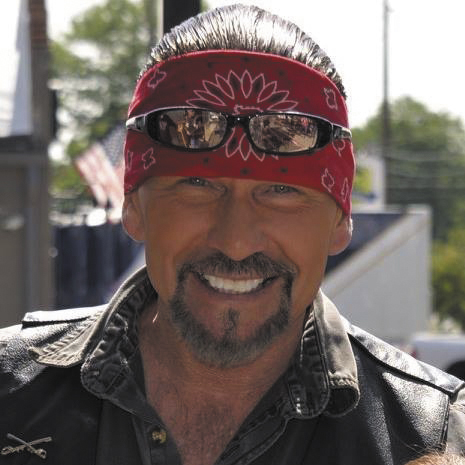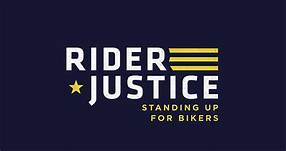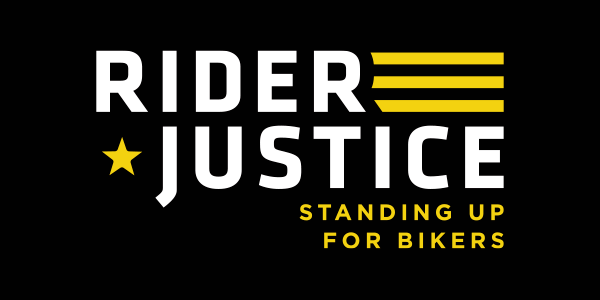You survived the crash. Your bones are healing, the medical bills are piling up, but something else is happening that nobody talks about – the invisible wounds that cut deeper than any road rash.
Every night, you close your eyes and see it again. The moment everything went wrong. The sound of metal hitting asphalt. The feeling of flying through the air. And then the crushing reality hits: you’re not the same rider you used to be.
If this sounds like your reality, you’re not alone. Nearly one in three motorcycle crash survivors develops PTSD symptoms, and the numbers for depression and anxiety are just as staggering. But here’s what makes it worse – most riders suffer in silence, thinking they should just “tough it out” and get back on the bike.
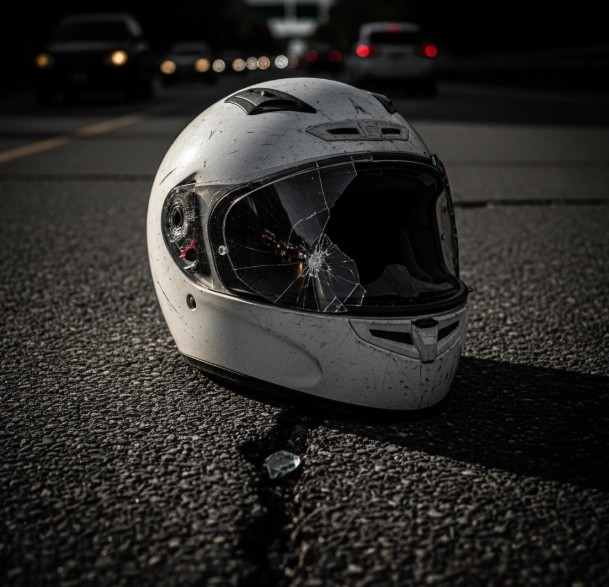 The Perfect Storm: Why Motorcycle Crashes Destroy Mental Health
The Perfect Storm: Why Motorcycle Crashes Destroy Mental Health
Unlike car accidents, where you’re protected by steel and airbags, motorcycle crashes are intensely personal and traumatic experiences. When you go down, you’re thrown from your bike, sliding across pavement with nothing between you and the road. Your body becomes a projectile, and your mind records every terrifying second.
But the trauma doesn’t end when the ambulance arrives. Three specific factors turn motorcycle crashes into psychological nightmares:
The Visual Replay That Never Stops
Your brain has an incredible ability to record traumatic events in vivid detail. Riders tell us they can replay their crash frame by frame – the approaching car, the moment of impact, the sensation of flying through the air, the pain of hitting the ground. These visual memories become stuck on repeat, playing during quiet moments, while trying to sleep, or when encountering similar traffic situations.
This isn’t weakness – it’s how the human brain processes life-threatening trauma. Your mind is trying to protect you by staying hyper-alert to danger, but instead, it keeps you trapped in the worst moment of your life.
The Insurance Nightmare That Adds Insult to Injury
Here’s what nobody prepares you for: dealing with insurance companies while you’re physically and emotionally devastated. You’re lying in a hospital bed, worried about permanent injuries, and insurance adjusters are questioning your medical treatment, denying claims, and forcing you to prove your injuries are “legitimate.”
The stress of fighting for basic medical coverage while recovering from trauma is like pouring gasoline on an emotional fire. Riders report feeling helpless, angry, and betrayed by a system that should protect them. When you can’t afford proper medical care or rehabilitation because of insurance disputes, the psychological pressure becomes overwhelming.
The Endless Stress of Recovery
Recovery from a serious motorcycle crash isn’t a few weeks of healing – it’s months or years of uncertainty, pain, and fighting to get your life back. You’re dealing with multiple doctors, physical therapy appointments, potential surgeries, and the constant fear that you may never be the same.
Meanwhile, bills are mounting, you might be unable to work, and your relationships are strained. Every day becomes a battle just to function normally, and the psychological toll of this prolonged stress crushes even the strongest riders.
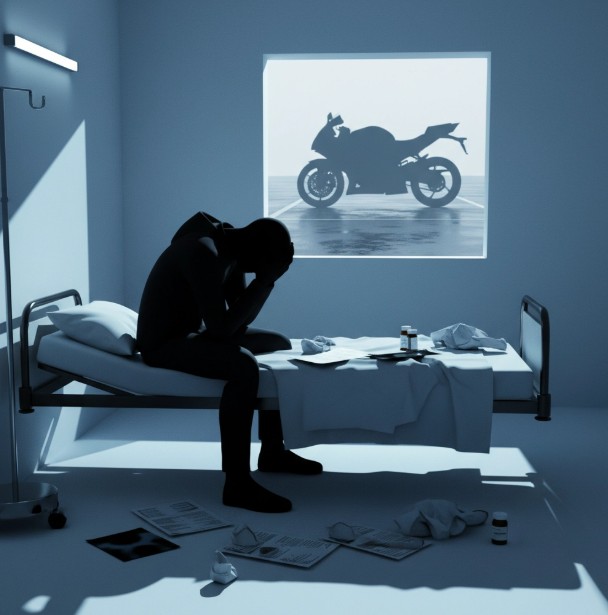 The Numbers Don’t Lie: This Crisis Is Real
The Numbers Don’t Lie: This Crisis Is Real
Up to 30% of motorcycle crash survivors develop PTSD – that’s nearly one in three riders who’ve been in a serious accident. Depression affects 17.4% of accident survivors, and anxiety disorders are even more common.
Think about your riding group. If three of you went down in crashes, statistically, one of you would develop PTSD. This isn’t rare – it’s predictable.
You Don’t Have to Fight This Battle Alone
The good news? PTSD and depression are treatable. With the right support, riders can and do recover their mental health and often return to riding with renewed confidence.
Professional Help That Works:
- Trauma-focused therapy specifically designed for accident survivors
- EMDR (Eye Movement Desensitization and Reprocessing) – highly effective for crash-related PTSD
- Support groups with other riders who understand your experience
- Medication when appropriate to manage severe symptoms
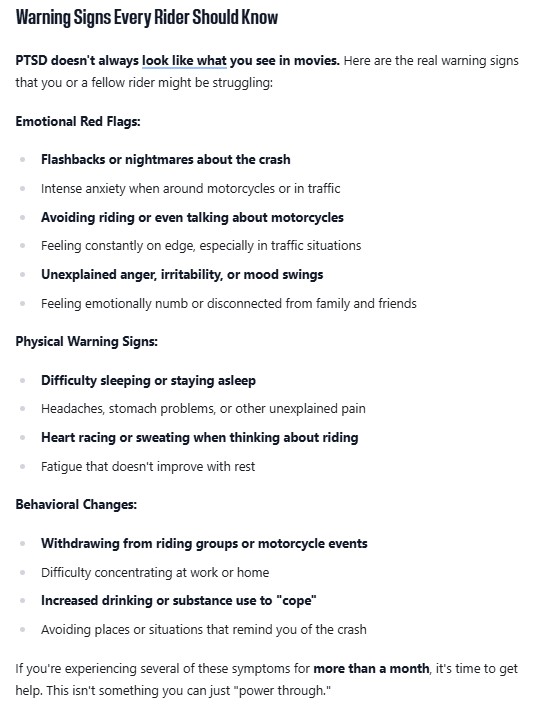 What You Can Do Right Now:
What You Can Do Right Now:
- Talk to someone you trust – bottling up trauma makes it worse
- See your doctor and be honest about your emotional struggles
- Join rider support groups – you’ll be amazed how healing it is to talk with others who “get it”
- Take care of your physical health – exercise, proper sleep, and nutrition support mental recovery
How BikerDown Foundation Steps In
At BikerDown Foundation, we’ve seen too many riders struggle alone with invisible wounds. We understand that supporting injured riders means addressing both physical and mental recovery.
Important clarification for riders: BikerDown Foundation does not provide financial assistance for PTSD- or depression-related injuries. Instead, we focus on emotional support, community connection, and recovery resources to help you find the right care and stay connected while you heal.
Here’s how we help:
- Direct financial strategy to help you cope and manage post-crash necessities that can trigger PTSD or depression-related issues.
- Connections to trauma specialists who understand motorcycle culture
- Peer support networks with other riders who’ve been through similar experiences
- Resources for dealing with insurance companies and legal battles
- Advocacy for better mental health coverage in motorcycle accident cases
We know that healing the whole person – body, mind, and spirit – is what truly gets riders back to living full lives.
Take Action Today
If you’re struggling with depression, anxiety, or PTSD after a motorcycle crash, don’t wait another day to get help. The symptoms won’t just disappear, but with proper support, they can be overcome.
Need help right now? Visit our help request page to connect with resources and support. You don’t have to face this alone.
Remember: seeking help isn’t weakness – it’s what strong riders do to get back on the road of life. Your mental health recovery is just as important as your physical healing, and we’re here to support you every mile of the way.
The crash may have knocked you down, but it doesn’t get to define who you are. Let’s fight this battle together.
FOR MORE INFORMATION OR ASSISTANCE, PLEASE DO A HELP REQUEST AT WWW.BIKERDOWN.ORG
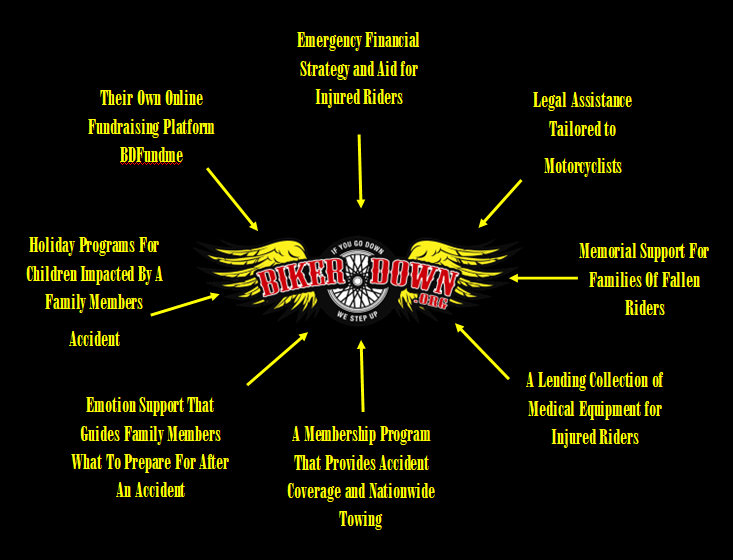
If you or someone you know is having thoughts of suicide, call the National Suicide Prevention Lifeline at 988 immediately.
